Making the most of Covid-19 emergency management gains: an introduction to Lean
Wednesday June 17th 11.00–12.00 CEST
Camille Durr
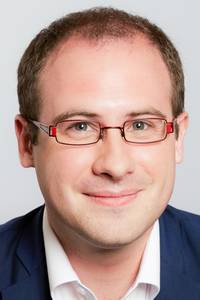
Managing Partner, CUBIK Partners
LEAN is a set of tools & techniques combined with cultural changes that aims at reducing waste and empowering people in an organization.
The aim is to constantly focus on the customer satisfaction, employee satisfaction and organizational profitability, or other non-financial measures of success.
But this is not a magic wand… It requires a real cultural change and some key success factors are:
Create a burning platform / momentum, in relation to the organization’s business context by identifying the operational issues that will mobilize your teams.
Start small, by working on ‘people irritations’ as a way of showing an ability to solve problems quickly and demonstrating a capacity to move forward (and avoid perfect performance diagnosis that lead to… no implementation!)
Ask your CEO or equivalent why they want to start such an initiative and make sure they understand what it means. LEAN is too often seen as a cost reduction approach… which it is not! Financial benefits are only the consequence, not the driver.
Think about the customer, or in the case of a university, its students and other stakeholders. Have you ever experienced your university’s core processes? What does it feel like? Put yourself in your ‘customer’s’ shoes.
But above all, LEAN is a journey that is not standard, you’ll need to create your own way… with these principles in mind!
Camille Durr has been a consultant and trainer for 15 years. He is passionate about LEAN transformation in service environments and support functions. With experience in LEAN program deployments at international level, he has developed his expertise around LEAN systems that sustain transformation over time. He is also a coach for executives, helping them understand what a LEAN culture represents in an organization.
Camille is a Managing Partner for CUBIK Partners, who are convinced that a humanistic approach can bring real operational performance (and unfortunately not the other way around!). Check Camille’s LinkedIn profile
Emergency management and learning. Will we learn lessons from the pandemic?
Thursday June 25th 10.00–11.00 CEST
Stephen Weller
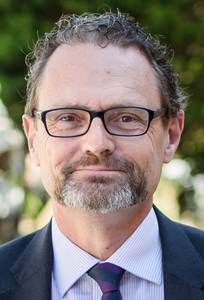
Chief Operating Officer & Deputy Vice-Chancellor, Australian Catholic University
Dr Weller is the Chief Operating Officer & Deputy Vice-Chancellor and is a member of the Senior Executive Group at Australian Catholic University. In this role Dr Weller leads the Corporate Services Portfolio which is critical to the achievement of the strategic and operational priorities of the University. The Portfolio includes infrastructure; information technology; properties and facilities; marketing and external relations; academic registrar and student administration; human resources; finance; planning & strategic management; and governance and general counsel.
Dr Weller is also responsible for providing effective corporate governance through the University Senate and Company in his role as Company Secretary.
Dr Weller has more than 20 years’ experience in tertiary education across six universities in three states. He holds a PhD in Organisational Justice from Victoria University; a Master of Business Administration from the University of Technology, Sydney; a Master of Commerce, Employment Relations from the University of Western Sydney; and a Bachelor of Arts, Government and Public Administration from the University of Sydney.
Dr Weller is Chair of the Universities Australia Deputy Vice-Chancellors (Corporate) Committee and was Chair of the Association for Tertiary Education Management from 2009-2015. He is a graduate of the Australian Institute of Company Directors and an Honorary Senior Fellow of the LH Martin Institute.
Stephan van Galen
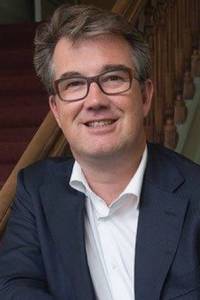
Secretary General, University of Groningen
Stephan van Galen has been the Secretary-General of the University of Groningen since September 2015. Previous to that he worked as a senior policy officer at the Association of Universities in the Netherlands (VSNU), and later he became General Secretary of the Accreditation Organisation of the Netherlands and Flanders (NVAO).
Stephan read Imperial History at King’s College London and continued his studies in Leiden and London at the School of Oriental and African Studies (University of London), resulting in a MA in South Asian history. The topic of his Leiden PhD thesis (defended in 2008) was “Arakan and Bengal. The rise and decline of the Mrauk U kingdom (Burma) between 1500-1700”.
The space race: a tipping point for blended learning & universities’ work space?
Wednesday July 1st 12.00–13.00 CEST
Nick O’Donnell
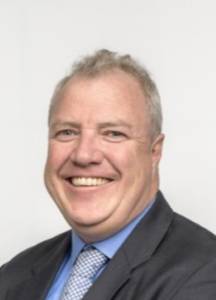
Director, Estates and Facilities, King’s College London
Nick O’Donnell is a qualified Chartered Surveyor and Chartered Engineer with a Master’s degree in Corporate Real Estate.
Before arriving at King’s in 2011, Nick’s career was in corporate real estate and facilities management with several listed companies, working in Europe, Asia, the Americas and Russia, embracing both retail and manufacturing sites. He has worked for the Financial Times, the BBC, Microsoft, HSBC, Seagram and Franklin Mint to name a few.
He is also a keen sailor who has circumnavigated the world while on an 18-month sabbatical.
Chris Cobb
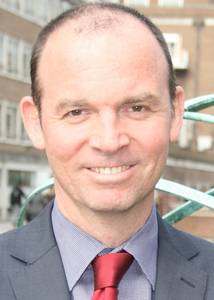
Pro Vice-Chancellor and COO, University of London
Chris Cobb is Pro Vice-Chancellor at the University of London. He was previously Pro Vice-Chancellor at Roehampton University and prior to that was at the London School of Economics where he was Director of Business Systems and Services.
Chris is a former member of the AHUA Executive (2014-2016) and is a member of UK HE Financial Sustainability Steering Group and is also a member of the HESA Data Futures Programme Board.
Chris has sat on a number of national working groups relating to IT in Higher Education. Chris is a member of Oracle EMEA HE Advisory Group and a member of Ovum’s Future EdTech Advisory Board. Previously he has been a member of the HEFCE Shared Services working group. He has undertaken JISC funded research in the use of enterprise architecture within a university context with the specific aim of developing a services oriented architecture to enable shared services.
Chris has also taught University IT Management at the HUMANE Winter School and is a member of the HUMANE Executive Committee and Round Table.
Chris is a judge on the Times Higher Education Awards and the Times Higher Education Leadership and Management Awards, and is also a Governor of Goodenough College and a Freeman of the Worshipful Company of Information Technologists and the City of London.
Webinar Series Facilitator
Ian Creagh
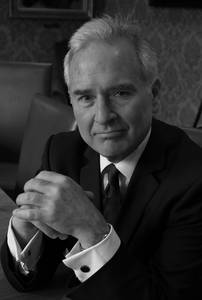
After serving 10 years as King’s College London’s Senior Vice-president Operations & College Secretary, Ian now holds a portfolio of roles including Strategy Consultant for HUMANE. Prior to King’s, he held similar chief operating officer roles at City University London and before that, the University of Adelaide. The first part of his career was in the Australian Public Service where he rose early on to become a member of the Senior Executive Service.
Ian is also an experienced non-executive having served on the Board of King’s Health Partners, the Council of Governors of an NHS Foundation Trust, and the audit committee of the British Academy. He is currently an independent non-executive member of BPP University’s Academic Council.